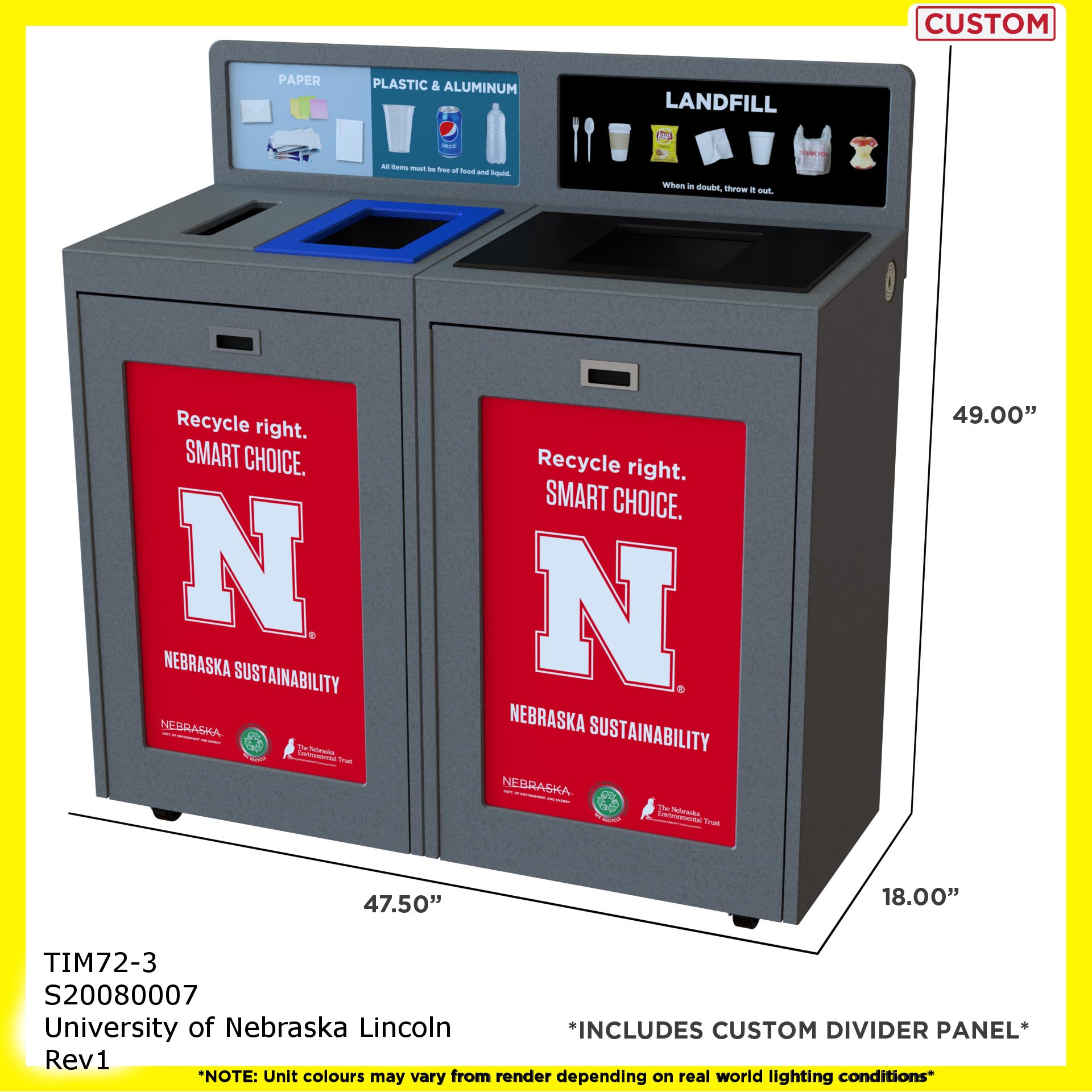
A pair of state grants are helping launch a pilot program designed to reshape and standardize recycling efforts at the University of Nebraska–Lincoln.
Led by the Office of Waste Management and Recycling, the project is fueled by responses to a campus survey that reported a need for better signage, uniform recycling bins and regular service. It also will help the university meet the city of Lincoln’s 50% recycling rate by 2022.
“Our internal survey of nearly 9,000 students, faculty and staff showed that 95 percent of the campus community want some type of improved recycling process,” said Prabhakar Shrestha, sustainability coordinator for the university. “While this project has real potential to improve recycling across the university, it’s also about us listening and responding to the needs of the campus community.”
While efficient with a rate of 41.5% in the last five years, the campus recycling program has expanded in waves, resulting in a system that varies by college, department and even floors within buildings. The first phase of the pilot program will replace different recycling systems in eight buildings with universal systems positioned in central locations.
Overall, the project aims to purchase 450 recycling stations, worth a total of $769,835. Along with setting campus guidelines for recycling and solid waste management, it will include standardized signage, posters and messaging; and a campaign to engage and educate students, faculty and staff about the benefits of pro-environmental behaviors.

Grants supporting the project include $199,962 from the Nebraska Environmental Trust, and $174,963 from the Nebraska Department of Environment and Energy. The university will provide matching funds for the pilot program.
“This will be a huge step for the university as we continue work to show that recycling is not a hard thing to do,” Shrestha said. “We believe this new system will be convenient for everyone, making it easier for the students, faculty and staff to practice a behavior that is good for the environment.”
The pilot program is supported by University Operations. Morgan Hartman, project coordinator for recycling services in the Office of Waste Management and Recycling, will oversee implementation of the program.
Buildings included in the pilot program are: Alexander Building, Andersen Hall, Canfield Administration Building, Hamilton Hall, Mary Riepma Ross Media Arts Center and Van Brunt Visitors Center on City Campus; and Agricultural Hall, Filley Hall and Hardin Hall on East Campus.
Shrestha said the program was scheduled to launch this fall, but has been delayed due to the COVID-19 pandemic. Updates on the launch will be provided.
Learn more about sustainability programs at Nebraska.








